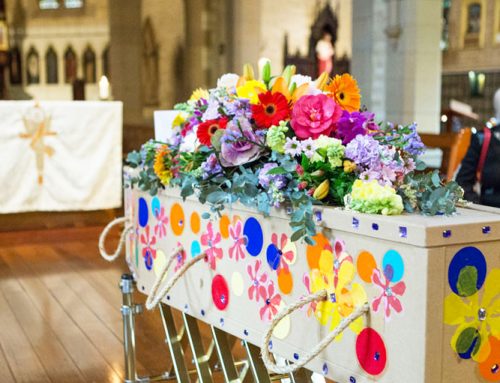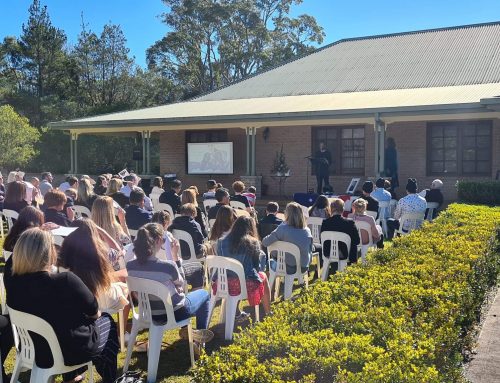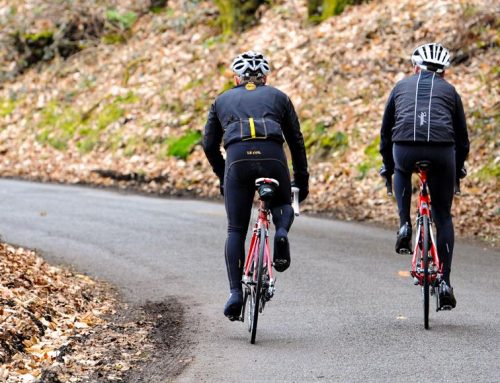Kidz on the Coast – Spring Issue 2013
I remember when the time came to ‘put down’ our family dog of 13 years. His cancer was rapid and aggressive and in a short space of time the small tumour on his neck became a massive impediment to his ability to breathe and be comfortable. There was no question his quality of life was no more and our beloved pet would die. We had a family conference with our two sons and explained to them what was to happen and on the scheduled day we took our darling dog to the beach for the last time. At the time our sons were aged 8 and 11. They came to the vet with us and embraced our dog, still wet and sandy from the beach, as he was put down. It was sad but beautiful and we all cried together.
The cycle of life and love, includes death. When a death occurs it is sad and profound and affects whole families and communities, including children. Whilst our natural impulse might be to protect and shield children from the details of death, whether we like it or not, they will be affected. Children have a natural reverence for life and will therefore feel and experience death profoundly too. I chose not to shield my kids from our dog’s dying but include them as participants in the reality and lovingly support them through the pain. They appreciated the role they played in supporting our dog at his death. It was an act of love and a moment of responsibility they stepped into bravely.
The effects of death, loss and grief affect everyone in a family, either directly or indirectly. Death lives in the land of grief and losses and it is a land we all have to visit sometime. Some of us are frequent flyers! Over the course of our lifetimes we may suffer many grief’s and losses; the loss of a relationship; the loss of a job; the loss of health or ability; the grief of a friendship ending or moving away from home and far from family and friends. And then there is the ultimate loss and ending, the death of loved ones and, of course, that final inevitability, our own death. We can’t shield our kids from experiencing these things but rather equip them with the ability to respond and grow through them.
Whether through illness, old age or tragedy very few of us will escape navigating through this experience, and unfortunately when it happens most of us are underprepared, lost and overwhelmed. In our Western culture we are remarkably shielded from the business of death or dying until the cruel hand of fate eventually throws us into that ring of fire. We leave the business of tending to the ill and dying to hospitals and nursing homes. We leave the business of departures to the churches or funeral directors. We also have cards of Hallmark phrases and euphemisms – such as “gone”, “in heaven” “passed”, “slipped away” and “put down” – to ensure we never even have to utter the “D” word. The art of avoidance, denial and sanitisation of death is well serviced, but does it really serve us?
Rather than being complicit to the dominant culture of taboo around death and dying, as a celebrant, therapist and pastoral care practitioner, every ounce of my influence is motivated to invite families and loved ones to be engaged, actively present and empowered around death. Just as we prepare for a birth with many rituals and social / familial traditions that pave the way for the arrival of new life; so too do we need an accessible pathway of appropriate language, rituals and readiness for dying.
When tending to a dying loved one, it is a time for final conversations (even if they are unconscious); it is a time of sharing stories and memories; laughing and crying; singing and praying. I encourage children to be present where appropriate in order for them to know their feelings are also being respected; that their relationship with the beloved family member is valid and included in the family dynamic. Seeing people sad or upset, whilst upsetting, gives children permission to also express their feelings, which is vital and healthy. However, sometimes there is a limit to what children can be exposed to. Death can also be quite visceral and challenging as bodies shut down and difficult decisions must be faced and each parent or guardian needs to ultimately judge what is appropriate.
A “good death” , if you will permit me such clumsy language, is a death where people are provided an opportunity for preparation, acceptance and loving guidance. When I work with families assisting them through the experience of a loved one’s last journey there are some important considerations. These include speaking clearly about what is happening; addressing fears and concerns about what treatment and medical support they need and want (or don’t want); and addressing and expressing emotions and fears, and helping families share feelings and support each other through them. Another concern is what are their wishes for their funeral? These are hard conversations but paradoxically once they are had, they bring so much relief.
Death is a lonely journey, but it is so much lonelier when you cannot share it honestly. Being prepared and properly supported through illness, dying and death doesn’t mean that it is emotionally easier or there is less grief. However what a real and community-based approach to dying can offer is great empathy, tangible support, true presence and connection, and even moments of grace, beauty and healing. It can be also time of reconciliation and relationship repair. It can be a time of growth and personal evolving.
No doubt about it, death is a tough and demanding experience for families. Without exception though, for families facing the illness, dying, death and funeral of a loved one, the best experiences are when they feel they have been involved in the care; when they have been present or gathered for the death; and active in the arrangements and delivery of appropriate rituals (both before and after death).
After Winter follows Spring, and after death, there is always new life.
Sarah Tolmie is a coach and therapist assisting people to navigate through all their life & love transitions. Her practice focuses on love & relationships, families & children; and life success & fulfilment. As a certified Master NLP Practitioner, Therapist & Coach, Sarah specialises in positive change techniques including Neuro Linguistic Programming (NLP), Time Line Therapy and Hypnotherapy. Sarah is also a Life & Love Celebrant, and pastoral care practitioner, creating profound and meaningful ceremonies for all life & love events. Sarah has an academic background in Social Anthropology and a Masters in Communication. You can visit her websites www.lifeandlovecoaching.com and www.lifeandlove.com or find her on Facebook.






